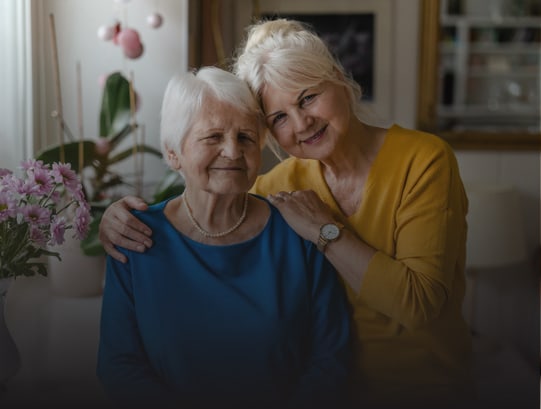When it comes to senior living, the right community matters. However, it takes some time to sort through your options and find a place that truly suits your loved one. Senior living communities offer a range of options tailored to different lifestyles and health circumstances. So what are the different levels of senior living?
The 6 levels of assisted senior living include:
- Independent living
- Basic assisted living
- Intermediate assisted living
- Advanced assisted living
- Memory care
- Skilled nursing
Independent Living
Independent living is a simple, maintenance-free option. It’s a carefree lifestyle tailored to older adults who are active and self-sufficient but want to enjoy the benefits of a senior living community.
Seniors in independent living typically have no serious medical needs. This option allows them to trade the responsibilities of home maintenance for a relaxed, engaging, and social life.
These communities often offer maintenance-free housing, communal dining options, and a variety of recreational activities. There are group outings, fitness classes, dietary options, and more. This lifestyle is ideal for those who want to stay autonomous while enjoying built-in support and friendship.
Basic Assisted Living
Basic assisted living is perfect for seniors who need light help with daily activities, but still want to maintain their independence. This is a nuanced lifestyle—it involves assistance with specific everyday tasks that trouble your loved one.
Basic assisted living offers support with:
- Medication reminders
- Meal preparation
- Personal hygiene assistance
- Light housekeeping
When an everyday task becomes frustrating, professional caregivers step in to help. The goal is to empower residents and help them retain their autonomy and independence.
Intermediate Assisted Living
When a loved one requires more consistent care, intermediate assisted living becomes ideal. This lifestyle provides moderate support to help them manage daily routines.
At this level, caregivers assist seniors with tasks like:
- Meal preparation and planning
- Mobility assistance
- Bathing and dressing assistance
- Transportation to appointments
Communities may provide additional health monitoring and coordination of care with outside healthcare providers. Intermediate assisted living is about bridging the gap between independence and care to help preserve quality of life.
Advanced Assisted Living
Advanced assisted living, also known as “personal care,” is a blended lifestyle. It involves providing a higher level of personalized care to help your loved one stay independent. When they need help with an everyday task, professional caregivers offer tailored support.
This lifestyle provides support with:
- Mobility assistance
- Bathing and grooming
- Housekeeping
- Transportation services
- 24/7 health monitoring
- Emergency response systems
Advanced assisted living often involves frequent health assessments and tailored care plans overseen by experienced professionals. This level of care offers in-depth, comprehensive support to help your loved one every day.
Memory Care
Assisted and independent living are excellent lifestyles for older adults. However, when memory loss or cognitive decline are at play, a person needs more advanced support.

This is when memory care shines. It’s a specialized option for seniors facing Alzheimer’s, dementia, or other memory-related conditions. The goal is to create a safe and structured environment to counteract the unique challenges of memory impairment.
In memory care, the teams are highly trained in handling the complexities of memory loss. They use techniques to help residents feel calm, secure, and valued. Memory care communities offer advanced therapies and activities designed to slow cognitive decline, preserve quality of life, and maintain dignity and respect for residents.
Skilled Nursing
Sometimes, age brings complex conditions. These often can’t be treated at home or in other senior living community lifestyles. If your loved one is living with a complicated medical condition or is recovering from a major surgery, they may benefit from skilled nursing.
Skilled nursing is the highest level of medical care offered by senior living communities. In skilled nursing, the communities hire licensed medical professionals alongside full-time caregivers. This gives your loved one access to round-the-clock hospital-style healthcare services.
Skilled nursing offers:
- 24/7 medical care
- Assistance with medication management
- Physical, occupational, and speech therapy
- Wound care and post-surgical recovery
- Support for chronic conditions
While some people may only need skilled nursing for short-term recovery, others may require it for long-term care. For those needing intensive support, this option provides a balance of medical care and compassionate attention in a structured environment.
How to Find the Right Community
Choosing the right community begins with understanding your loved one’s unique needs. With so many senior living options, finding a community that offers the right level of care can be transformative for both seniors and their families.
There’s no need to worry, though. Our team at Bridge Senior Living is here to help. We offer many levels of care across our communities, so it’s never been easier to find the care your loved one deserves. Contact our team today, and let’s find your loved one’s future home!









